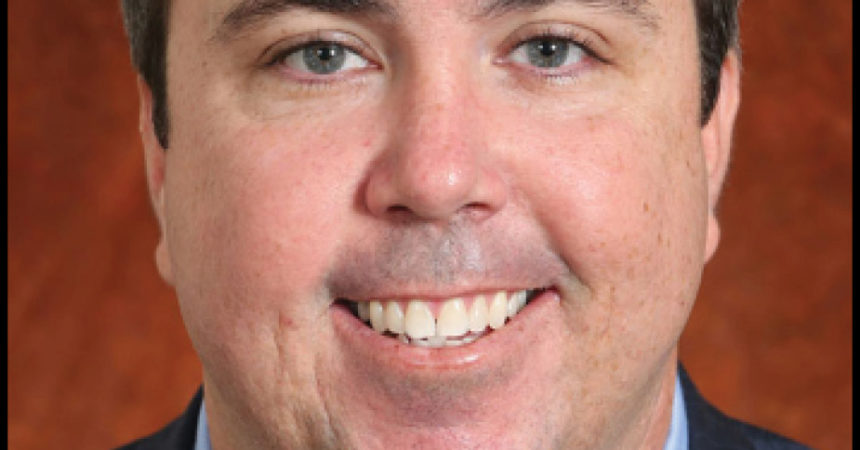
GOP lawmakers mull ‘E-verify’ issue

Sen. Joe Gruters
By Ana Ceballos
News Service of Florida
A Republican lawmaker who helped Gov. Ron DeSantis deliver this spring on a key campaign promise to ban so-called sanctuary cities is non-committal about sponsoring legislation that would require businesses to check the immigration status of workers via the “E-Verify” system.
Two months ago, Sen. Joe Gruters, who doubles as chairman of the Republican Party of Florida, said he intended to file an E-Verify proposal. But this week, he told The News Service of Florida he is not so sure.
“I want to hear what people have to say,” Gruters said, referring to feedback he was unable to receive because of calling off a planned statewide “listening tour” on immigration. He nixed the tour after a mass shooting in El Paso, Texas, that appeared to target Mexican immigrants.
“I will try to make a decision soon on the tour and then will make a decision (on E-Verify),” Gruters said.
While Gruters said his hesitance is tied to the listening tour, Rep. Cord Byrd, told the News Service last Wednesday that he will champion an E-Verify bill during the 2020 legislative session. Byrd, a Neptune Beach Republican who was slated to join Gruters on the listening tour, added he is polishing the legislation before filing it in the House.
During the 2019 session, Gruters and Byrd led efforts to pass a bill that banned sanctuary cities in Florida. In doing so, they delivered a major win to DeSantis, who promised during last year’s gubernatorial campaign that he would crack down on local officials who aid illegal immigration.
In previous years, efforts to pass sanctuary city bills had gone nowhere.
After leading the way on sanctuary cities, Gruters and Byrd indicated they intended to file E-Verify legislation for the 2020 session. Such proposals in the past have been fiercely opposed by agriculture, tourism and construction interests, some of whom are big GOP political donors.
Florida Chamber of Commerce President Mark Wilson said this week that any laws governing the immigration-verification system should be made at the federal level and not at the state level. But said he has not asked DeSantis to “back down” on the issue.
“Remember, there is a legislative process involved in this, too. So, we are working with the Legislature on what we think smart policy needs to be,” Wilson told reporters last Wednesday after a news conference with the governor related to improving the business climate in Florida.
When the E-Verify issue stalled during the 2019 legislative session, DeSantis told reporters that he would not give up on the issue and blamed a lack of unanimity among Republican lawmakers.
During the 2020 session, in a year when Republican President Donald Trump is at the top of the ticket and immigration proposals could be used to win over voters, DeSantis’ office said he will back an E-Verify proposal.
“The governor is unwavering in his support for E-Verify. He will support legislation this session,” Meredith Beatrice, a spokeswoman for the governor’s office, said in a statement.
The governor supports requiring all private employers to use E-Verify for new hires, but he is not expected to fully back any bills until he reviews the detailed language of the proposals. E-Verify is a federal electronic system that checks employees’ eligibility to work in the U.S.
Under an executive order issued in 2011 by former Gov. Rick Scott, which remains in effect, state agencies and their contractors are required to verify the employment eligibility of all new employees via E-Verify.
In the House, Byrd is ironing out details of his proposals and said he does not know if all of Florida’s private businesses would be mandated to use the system.
“Under the umbrella of E-Verify there are a lot of nuances that we need to figure out,” Byrd said. He added that he is looking at “different proposals” that have been implemented in other states.
Sen. Dennis Baxley, R-Ocala, who Gruters recently involved in conversations about being a potential Senate bill sponsor, expressed concerns about an E-Verify mandate impacting businesses that need workers, citing a low unemployment rate in the state.
In July, there were 344,000 jobless Floridians in a workforce of 10.35 million. Those numbers translated to a 3.3. percent state unemployment rate, according to a report released last month by the state Department of Economic Opportunity.However, Baxley said he believes in following the rule of law and supports having an immigration verification tool for the workforce.
“A lot of people would like us to file and implement E-Verify, but we need to address unemployment and workforce needs,” Baxley told the News Service.
Rep. Anthony Sabatini, R-Howey-in-the-Hills, said it would be a “major disappointment” for his constituents if the GOP failed to deliver on E-Verify, which he called a “common-sense measure.”
“Passing E-Verify is the least the Florida Legislature can do to deter illegal immigration,” Sabatini told the News Service.
Sabatini added that he voted for DeSantis over former Agriculture Commissioner Adam Putnam in last year’s Republican gubernatorial primary because of the issue and hopes to see the governor be more forceful on it.
In 2018, DeSantis accused Putnam of working behind the scene with agriculture interests to dampen efforts to pass E-Verify laws. Putnam said on the campaign trail that Congress needs to come up with an immigration fix.
“Many of us supported DeSantis over Putnam because of this very issue. I believe the governor should step in and ensure this gets passed,” Sabatini said.






